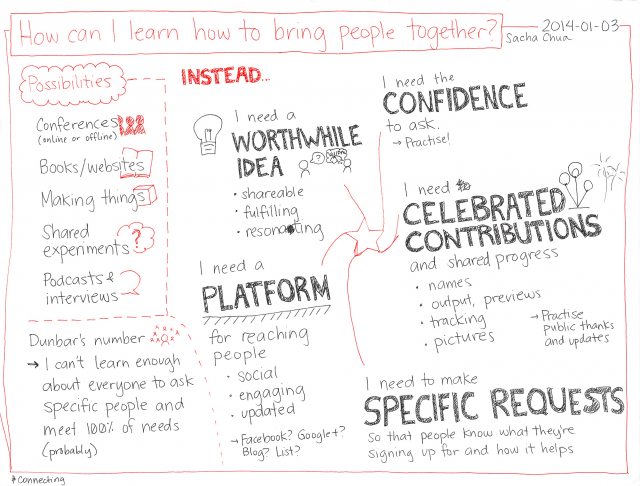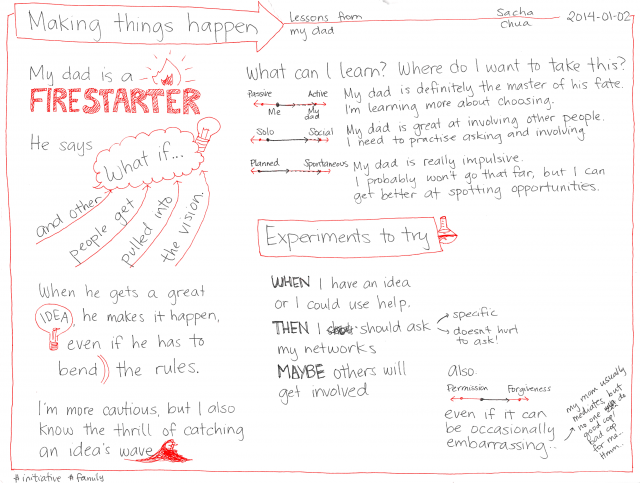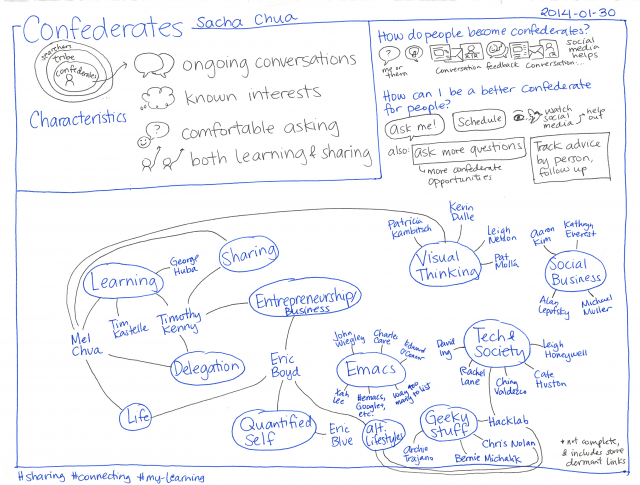On Aristotle and talking to people about troubles
Posted: - Modified: | connectingAfter reflecting on how I'd like to respond to people who want to talk about their challenges and how I want to discuss mine, I've been thinking a little bit more about the approaches that I favour and why.
Despite my faith in friends and availability of support groups or forums for pretty much any situation one can find yourself in, I tend to work through things independently. Sometimes I talk to W-. Even then, it's often retrospective: “I worked through this-and-this dilemma. This is the decision I've come to because of these reasons, but I'd love to hear your thoughts in case I missed something.” I'd rather talk to people about the good stuff.
When it comes to other people talking to me about stuff they're going through, I assume they're smart and have tried things, so I ask questions about the obstacles they've run into. I like focusing on getting over barriers because this is one thing that other people can actually help with. You might get stuck on something because you don't know where to start, don't have the skills or experience for it, or because it intimidates you. Other people might be able to map out an easier way for you, directly help you (hooray for comparative advantage), or share how it's really not that scary if you focus on doing X, Y, and Z.
While reading D.P. Chase's translation of Aristotle's Nicomachean Ethics, I came across this passage on what to share with your friends when you're going through challenges:
But [friends'] presence has probably a mixed effect: I mean, not only is the very seeing friends pleasant, especially to one in misfortune, and actual help towards lessening the grief is afforded (the natural tendency of a friend, if he is gifted with tact, being to comfort by look and word, because he is well acquainted with the sufferer's temper and disposition and therefore knows what things give him pleasure and pain), but also the perceiving a friend to be grieved at his misfortunes causes the sufferer pain, because every one avoids being cause of pain to his friends. And for this reason they who are of a manly nature are cautious not to implicate their friends in their pain; and unless a man is exceedingly callous to the pain of others he cannot bear the pain which is thus caused to his friends: in short, he does not admit men to wail with him, not being given to wail at all: women, it is true, and men who resemble women, like to have others to groan with them, and love such as friends and sympathisers. But it is plain that it is our duty in all things to imitate the highest character.
So if you're sad, it can help to have company in your sadness, but that might cause your friends to feel sad as well. Be strong, if you can.
It would seem, therefore, that we ought to call in friends readily on occasion of good fortune, because it is noble to be ready to do good to others: but on occasion of bad fortune, we should do so with reluctance; for we should as little as possible make others share in our ills; on which principle goes the saying, “I am unfortunate, let that suffice.” The most proper occasion for calling them in is when with small trouble or annoyance to themselves they can be of very great use to the person who needs them.
That's probably going to be my approach to getting by with a little help from my friends: to figure out, perhaps, if there are small things people can do that could have a big impact, and to focus on those instead of on commiseration. As for when people approach me, or when I notice friends in difficult situations, I will try to keep this in mind:
But, on the contrary, it is fitting perhaps to go to one's friends in their misfortunes unasked and with alacrity (because kindness is the friend's office and specially towards those who are in need and who do not demand it as a right, this being more creditable and more pleasant to both); and on occasion of their good fortune to go readily, if we can forward it in any way (because men need their friends for this likewise), but to be backward in sharing it, any great eagerness to receive advantage not being creditable.
… to see the opportunity to be kind, where kindness might be cooking a good meal, giving a person a hug, or helping out in ways that take advantage of our different skills and experiences.



